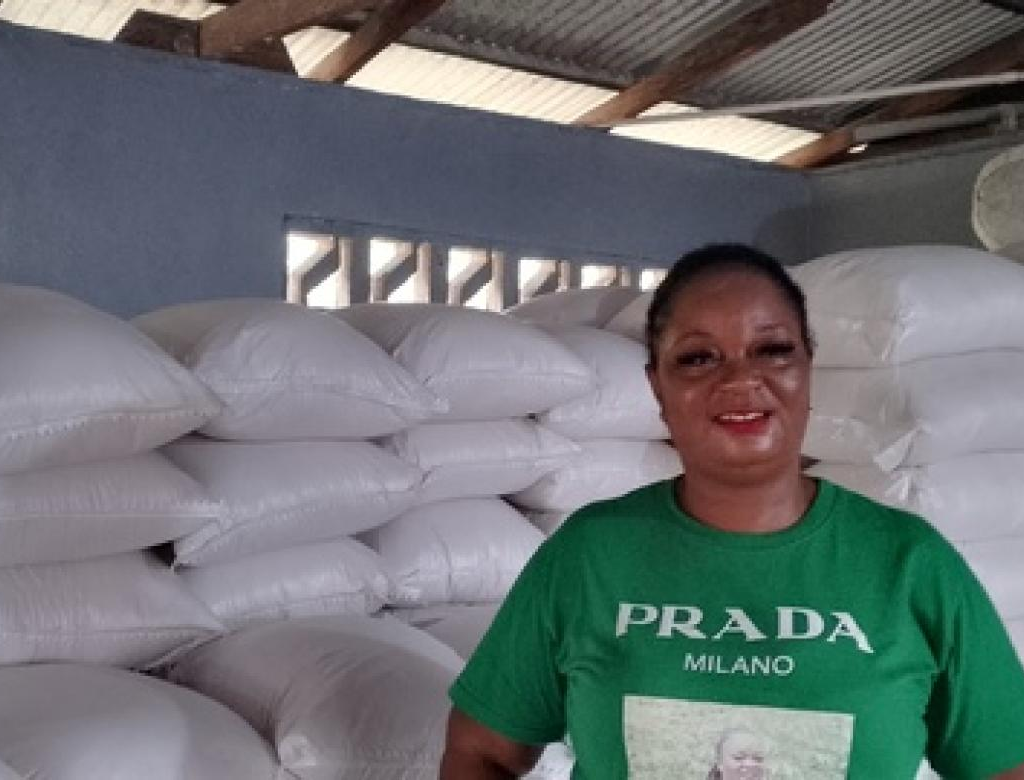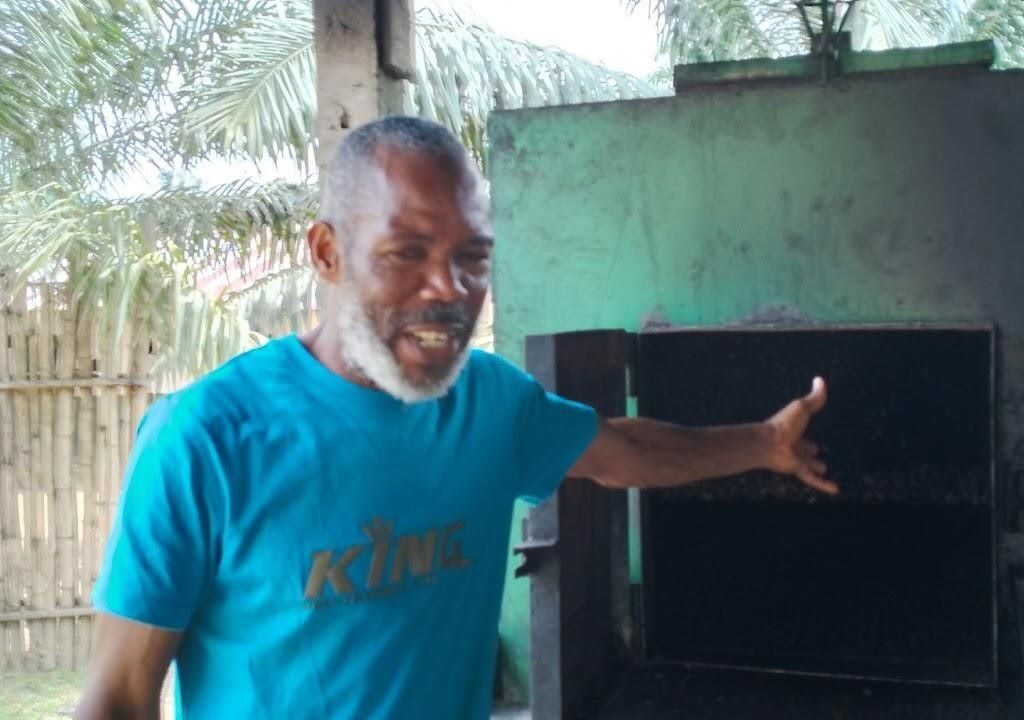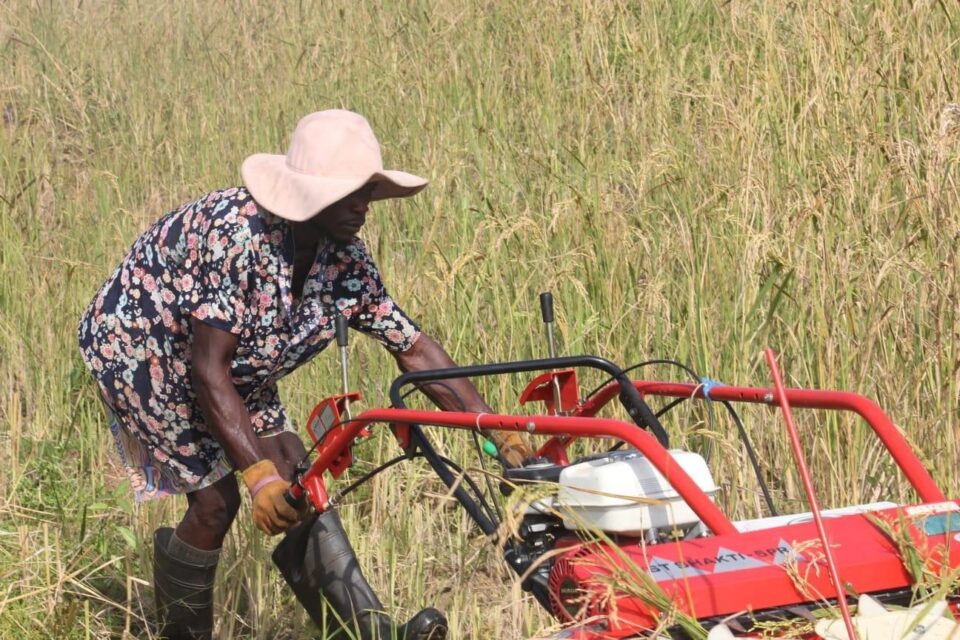PHOTO: LACF introduces technologies to help farmers expand production
By Judoemue M. Kollie
Many smallholder farmers and agribusiness owners lacked access to inputs and finance over the years thereby affecting their livelihoods and incomes.
However, with the introduction of the Liberia Agriculture Commercialization Fund (LACF), a component of the World Bank and the International Fund for Agricultural Development (IFAD) projects of the Ministry of Agriculture, smallholder farmers and agripreneurs in the rice, cassava, vegetables oil palm, rubber and the livestock value chains can now access support to improve farming businesses.
Several of the beneficiaries engaged in some of the targeted value chains, rice, vegetables, cassava, oil palm and livestock recently informed this Reporter in an interview that they are experiencing changes in their farming activities as the result of support obtained under the program.
The beneficiaries said their production capacities and incomes have improved to some level.
The LACF, which is managed by Deloitte, a Ghanaian financial firm, hired by the Ministry, was launched in 2021 by President George M. Weah during the Annual National Agricultural Fair.
The objective of the program is to increase agricultural productivity and commercialization of smallholder farmers and agribusiness owners for selected value chains.
It seeks to achieve this goal by supporting smallholder farmers and agribusiness owners with grants to address challenges of production and marketing in order to ensure a commercialized agricultural sector for the development of the economy.
The co-investment fund which is valued at US$ 41 million for 4-years has disbursed grants ranging from an amount US$ 15,000.00 to 200,000.00 over the period to the several of the beneficiaries respectively.
The beneficiaries are using the fund to purchase or repair mechanized equipment, buy inputs, improve irrigation structures and to construct modern processing facilities as wells as warehouses.
Liberia’s Agriculture Minister, Jeanine M. Cooper had once described the LACF initiative as a great milestone intended to support the private sector to strengthen the economy.
“In Liberia we are working with our international partners to access funds in order to support the private sector. This effort is yielding a very great result,” she once told international partners.
Agriculture in Liberia is still being greatly funded from external sources.
Testimonials from the LACF
Mohammed Dukuly, is the manager of the Senjeh Agricultural Production and Partnership that specializes in the production and processing of rice for the market within Grand Cape Mount County.
Dukuly said two years ago, they started the business cultivating 19 acres using traditional methods and realizing very little yields and profits. But stated that with assistance from the LACF, they have expanded production to approximately 100 acres using machines.
He said they are hopeful of obtaining better profits from the business.
Senjeh Agricultural Production and Partnership is a registered farming organization among several businesses that has benefited from the initiative.
The Ministry of Agriculture is supporting the business and others in the rice sector to increase domestic rice production.
Dukuly said, the grant has enabled them to procure farm tractors to plough the field, truck to transport paddy, and processing equipment as well as to begin the construction of a modern rice processing hub to create processing opportunity for the farming communities.
He stated that the construction processing hub is expected to be completed very soon.
Dukuly mentioned that they have identified 150 rice farmers in the farming communities of the county as out growers with the intent to support them with improved rice seed varieties so that they can supply the facility in a sustainable way.
He expressed the hope of extending their processing operation beyond the county.
However, he explained that harvesting is a serious challenge for the company.
“We are in need of a combined harvester and other equipment to overcome the harvest challenge,” he said.
He disclosed that they are currently using reapers, a machine used to harvest rice which was provided by the Ministry.
“We are very much thankful to the Partners through the Government for the support. This support is going to help us transition from subsistence farming. But one of our main challenges is the lack of an appropriate machine for the harvest,” he said.
Comfort Lovo Mulbah of the Destiny Women Processing Business located in Bentol City, Montserrado County is a beneficiary of the LACF grant as well.
She said that the marketing of cassava was a very serious challenge for her business before learning about the LACF grant.
According to Comfort, the grant had provided a truck that she is currently using to transport raw cassava produce from farmers in the farming communities which she processed to supply the World Food Program school feeding initiative.
The Destiny Women Cassava Processing facility is a modern processing facility established under the Smallholder Agricultural Productivity Enrichment Commercialization (SAPEC) program that phased out a few years ago.

Comfort Lovo Mulbah, CEO of the Destiny Women Cassava Company
Because the facility is an industrial hub it can create processing access for hundreds of farmers.
Comfort mentioned that the sale of processed cassava to institutional buyers like WFP has dramatically increased her profit margin.
I am now earning US$37,000.00 every month as a sale of processed cassava for the school feeding program. I want to become a millionaire farmer in Liberia. Farmers should not always be looked at as poor people,” she proudly said.
She mentioned that the facility now has a solar panel acquired through the grant that has extended the production hours.
Comfort explained that in the past the farmers experienced losses when transporting their raw cassava to the factory, but with the provision of the truck the farmers are happy.
She said that she is buying the cassava from the farmers at an attractive farm gate price.
Meanwhile, Comfort has underscored the need for the commercialization of the cassava sector to benefit more farmers and processors.
According to her, the market for cassava is limited and there is a need for the government to prioritize the passage of the 10 percent cassava flour composite policy.
“The policy, when taken into consideration, is going to create better market opportunities for the cassava farmers and processors,” she explained.

Pastor Bosten Devine, oil palm farmer in Bomi County.
The small-scale oil palm sector is also one of the sectors that is experiencing changes as the result of the LACF grant. Some processors in the sector facilities have been upgraded to supply the market.
Pastor Bosten Devine of the Rural Community Developers Enterprise in Bomi County owns 25 acres planted with improved oil palm but had earlier processed his oil using manual labour.
However, after accessing the grant, he now operates an industrial oil palm mill producing more oil for the market.
His facility is among several of the factories that have been transformed under the LACF grants.
“Before we were processing 30 tins of oil monthly. But since we transitioned to industrial processing we are producing 100 tins,” he said.
Divine said in order for the small scale oil palm sector to develop the sector will need an export opportunity.
He said the sector is yet to benefit from the RoundTable for Sustainable Palm Oil (RSPO), a policy that certified producers for the export market.
Oil palm producers said members of the small-scale oil palm sector have met the criteria for the RSPO but will require the Ministry to apply before the sector benefits.
To date, according to the Ministry of Agriculture, approximately 125 farmers and agripreneurs have applied and have benefitted from the LACF program.
The Ministry says more than 38, 000 smallholder farmers, and agribusinesses are expected to benefit from direct inputs and the grant to improve productivity and supply the market.

